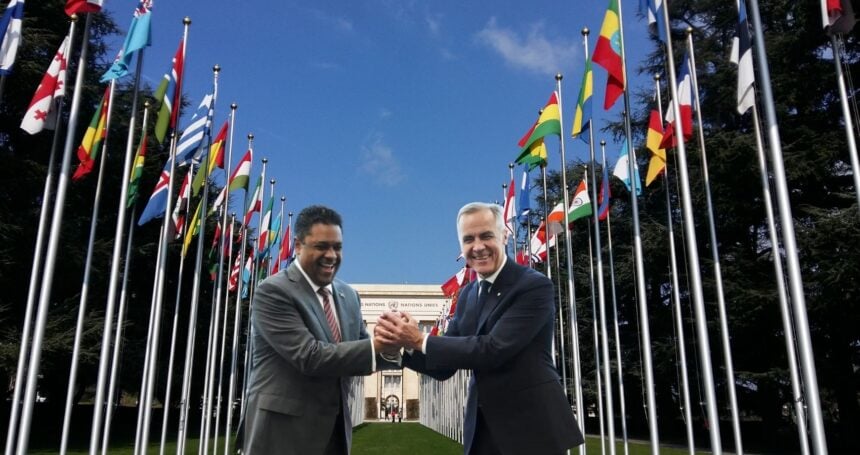Canada put new weight behind Caribbean security and economic engagement this week, pairing a meeting between Prime Minister Mark Carney and Jamaica’s Andrew Holness with a fresh $60 million commitment for Haiti.
The readout from the Prime Minister’s Office said the leaders met on the sidelines of the United Nations General Assembly in New York, discussed closer links in trade, security, and commerce, and focused on the deepening crisis in Haiti.
It also noted that Carney flagged the funding announced the previous day to support Haiti and regional maritime security. The official summary is brief but the signal is clear.
Ottawa wants to move in step with CARICOM’s current chair and with regional partners on both near term stabilization and longer term economic ties.
$40 million is slated for the Multinational Security Support mission or its successor, subject to a Security Council vote on a Haiti resolution.
$20 million is aimed at a regional maritime security effort to counter transnational crime that spills across Haitian and Caribbean waters.
The department’s backgrounder places the announcement in a broader posture that has included police and development support since 2022. The package fits a simple logic.
Haitian security remains a regional problem with regional consequences, and maritime interdiction is a necessary complement to any on the ground mission.
Jamaica holds the rotating chair of CARICOM, and Holness has said his term will emphasize people, partnerships, and practical cooperation.
It also aligns with Ottawa’s broader positioning at the UN this week, where donors have pressed for clearer mandates and financing for any renewed multinational effort in Haiti.
The sequencing in Canada’s own release, with the security portion conditional on a council resolution, reflects the diplomatic choreography as much as budget prudence.
Banks, insurers, and telecom firms with Caribbean footprints track governance and security trends closely because they shape credit costs and network resilience.
Transportation, tourism, and food distributors watch maritime enforcement because it affects shipping risks and premiums. Remittance providers and fintech players follow cross border rules as closely as they do payments demand.
Even miners and clean energy developers eye the region’s regulatory climate as governments chase investment tied to grid upgrades and port logistics.
A steadier security baseline in Haiti and better maritime policing across the northern Caribbean would count as a tailwind for those exposed sectors, even if the benefits show up gradually.
Canada’s new money is meaningful in that context, and the breakdown between land and maritime efforts nods to how gangs, guns, and goods actually move.
None of this resolves the political path inside Haiti, but it buys time and capacity for any Haitian led roadmap to take shape.




















